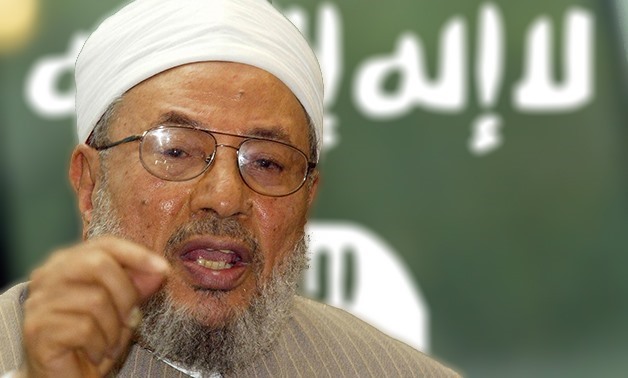Qardawi — the caller of Terrorism
by Peter Welby
Most famously and notoriously, he justifies suicide bombings. He has done this repeatedly, with regards to Syria, Iraq and Israel / Palestine.
In counter-extremism circles, many prefer to focus on violent extremism: Anything that explicitly calls for or engages in violence on behalf of an extremist ideology. Others — and I put myself firmly in this camp — believe that there are sets of ideas that are dangerous not because they explicitly lead to violence, but because they create a worldview that is exclusivist in a way that affects others — a worldview that renders violence more likely.
The countering-violent-extremism camp has good reasons for its position. Many are concerned about policing ideologies, on the grounds that it comes close to policing thoughts and conscience. The European legacy of heresy hunting before, during and after the Reformation left a disturbing cultural memory, particularly in the US, to which many of the original settlers travelled to escape persecution for their beliefs.
Yusuf Al-Qaradawi is an interesting example of this dilemma. Some of his views are simply conservative (and some perhaps reactionary). But some of his views are dangerous, not just to those who follow them, but to others as well. Yet he is able to sit down at dinners with heads of state, implying their blessing — and certainly their protection — of his views.
He has never been proved to be violent, although he was suspected of involvement in an assassination plot in the 1950s. And at the age of 92, he has more of an air of a cuddly grandpa than a frothing fanatic.
Yet he has spent decades propagating a view of Islam that has helped fuel much of the violence that has rocked the Middle East and North Africa — and other parts of the world — over the past few decades, counting terror financiers and terrorists among his former confederates and business partners.
But his associates do not tell us a great deal about him. More telling is what he says. The quotes that Arab News has collected is revealing of a man who not only revels in the violence of others, but is also vastly out of touch with the contexts into which he offers his opinions.
Most famously and notoriously, he justifies suicide bombings. He has done this repeatedly, with regards to Syria, Iraq and Israel / Palestine. It is not an ill-considered judgment conceived in the emotion of anger at foreign occupation. It is his considered belief that suicide bombings can be justified.
Nor is Al-Qaradawi afraid of playing with words. In a 2004 sermon, he acknowledged that attacks on civilians are prohibited in Islam, before going on to redefine what a civilian is, to the point that the distinction becomes meaningless. Similarly, he describes all Israelis, civilian or otherwise — including children — as valid targets, on the tenuous grounds that they may grow up and become soldiers.
He may think that he was only talking about the US occupation of Iraq, and civilians who accompanied it, or only about Israel. Does he therefore think that he is shielded from blame for the indiscriminate slaughter that took place against fellow citizens, foreign aid workers and others in Iraq, and elsewhere in the Arab world since then?
He does seem to think that. In another 2004 statement, he appeared to claim that violence around the world was the fault of American culture, and Western movies in particular. And in a switch into the anti-Semitism for which he is notorious, he seems to blame this perceived violence of Western culture on the Torah.
It is fascinating to me how easy it is for someone to apply standards that they resent being applied to themselves when talking about others. Al-Qaradawi claims that the Torah commands that when Jews enter a country, they should either make the residents their slaves or kill them. It is, of course, common for the ignorant to make similar claims about Muslims on the basis of the Qur’an read out of context — something I am sure Al-Qaradawi deplores.
A long career in the public eye shows the balance of his opinions. These extremist and anti-Semitic tendencies are not aberrations, but the constant theme. It is his calls for peace and tolerance that are the aberration, and even these betray his deeper concerns.
In 2014, following the announcement of the international coalition to defeat Daesh, he tweeted: “I oppose ISIS (Daesh) completely in ideology and methodology, but I can never accept that the ones to fight them be America, which is not moved by Islamic values.”
Al-Qaradawi cannot accept that there is good outside the Muslim world. He has described dialogue with Christians as “a waste of time,” on the curious grounds that they do not agree with Muslims on key religious issues. And he will not speak with Jews at all, supposedly due to the actions of the Israeli government.
It is these attitudes that make him dangerous today. Daesh may have been defeated on the battlefield, but it continues to recruit people to its cause. Muslims who have already imbibed the toxic ideology of Al-Qaradawi are more vulnerable to the call. The exclusivist brand of Islam that he represents makes it easier to demonize, and ultimately kill, those who disagree — whether Muslim or non-Muslim.
Peter Welby is a consultant on religion and global affairs, specializing in the Arab world. He is based in London, and has lived in Egypt and Yemen.
Article first published on Arab News.



